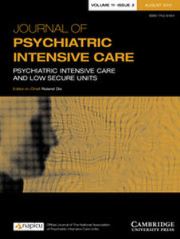Article contents
The refeeding syndrome; easily overlooked as a cause of delirium in psychiatric and medical intensive care
Published online by Cambridge University Press: 19 July 2012
Abstract
Delirium is a severe and complex neuropsychiatric disorder and because of its diverse aetiology is often poorly managed. The refeeding syndrome is a well known cause of delirium, characterized by metabolic disturbances elicited during reintroduction of nutrition after a period of starvation. Although a common complication, it is often not recognized by clinicians.
A 53-year-old man presented at the emergency department with psychomotor agitation, irritability and disorientation in time. Apart from previous alcohol abuse he had no documented medical history. Examination led to detection of an intracranial haemorrhage, which could explain cognitive dysfunction. After admission, his level of consciousness gradually improved and he resumed eating and drinking. However, a deterioration of his mental status occurred after three days.
Blood analysis revealed a severe hypophosphataemia indicating refeeding syndrome. After a new dietary regimen and aggressive supplementation of electrolytes his mental state improved rapidly. Following correction of phosphate plasma concentration, no further episodes of severe confusion or disorientation were observed.
This case report illustrates that clinicians in both psychiatric and general intensive care must be aware of the numerous causes of delirium that can be present concurrently. Refeeding syndrome may be overlooked initially when more alarming causes of a delirium are noticed.
- Type
- Case Report
- Information
- Copyright
- Copyright © NAPICU 2012
References
- 1
- Cited by




